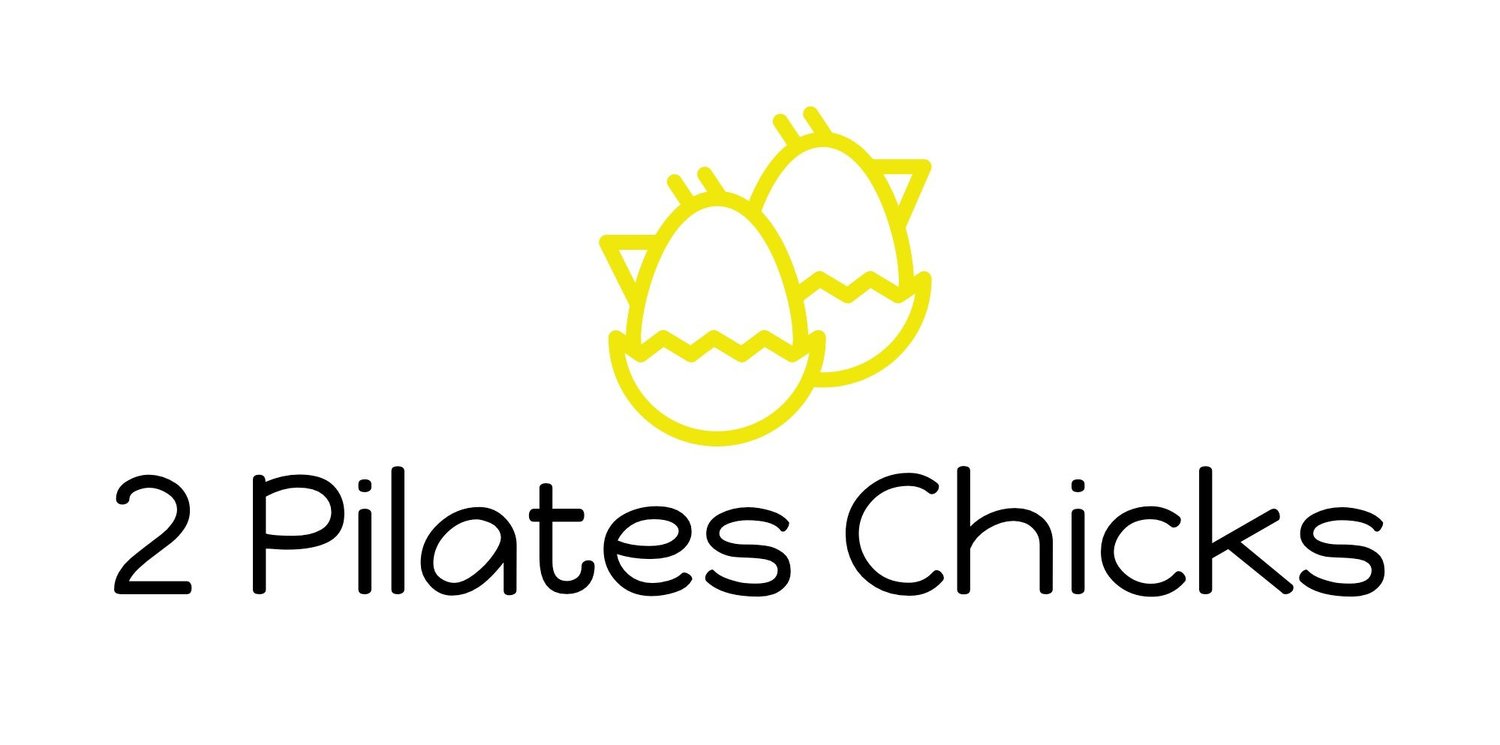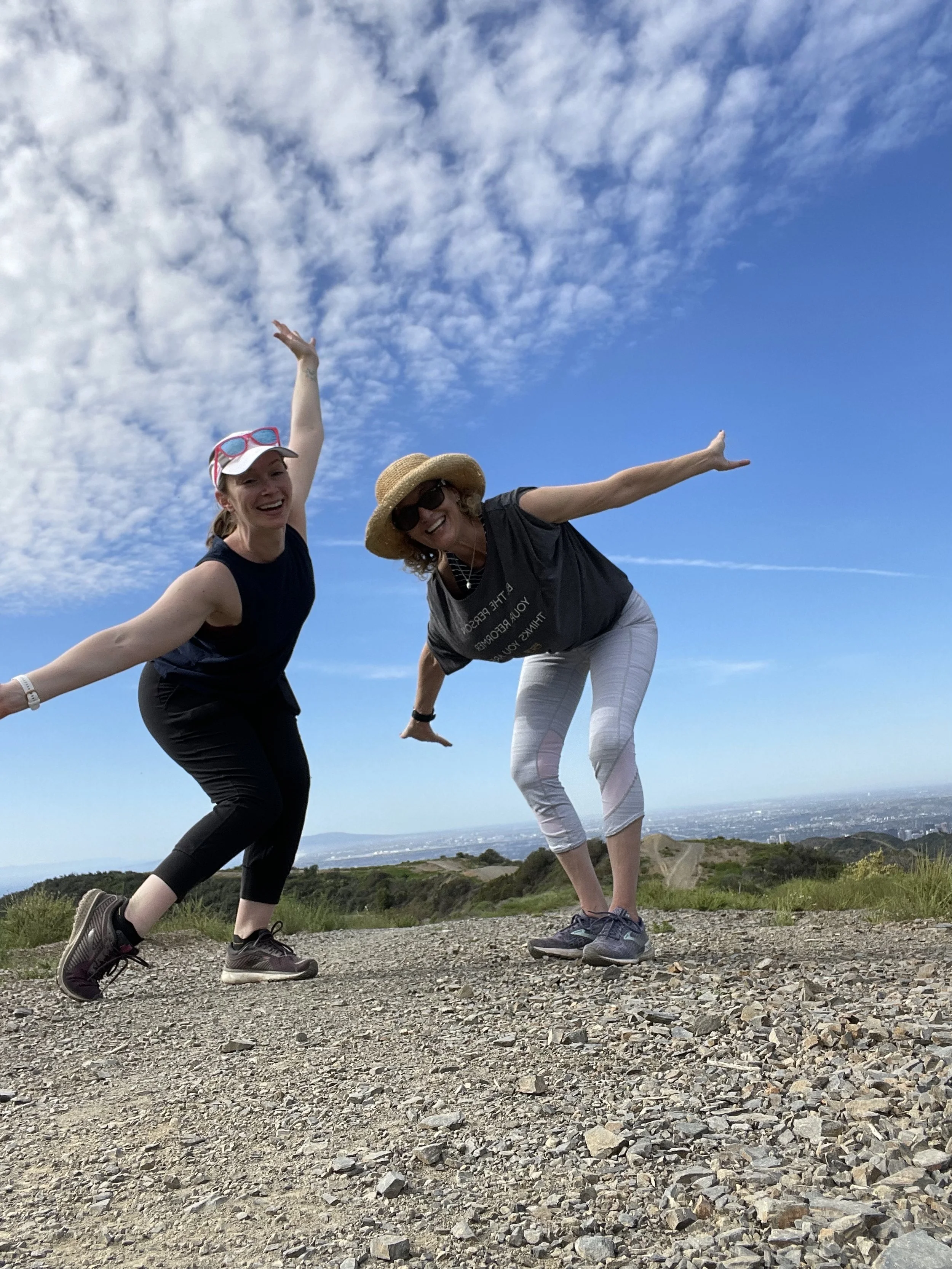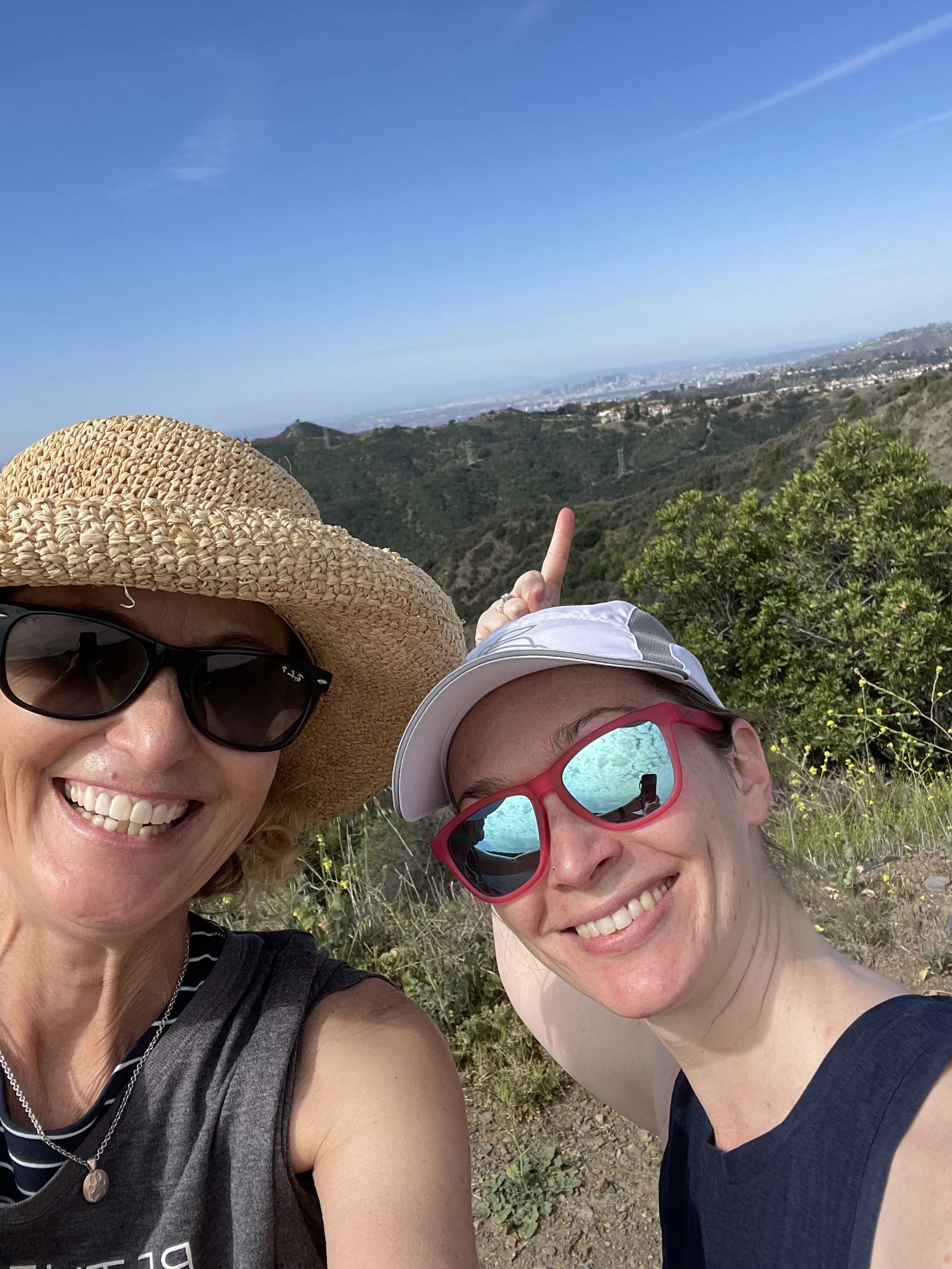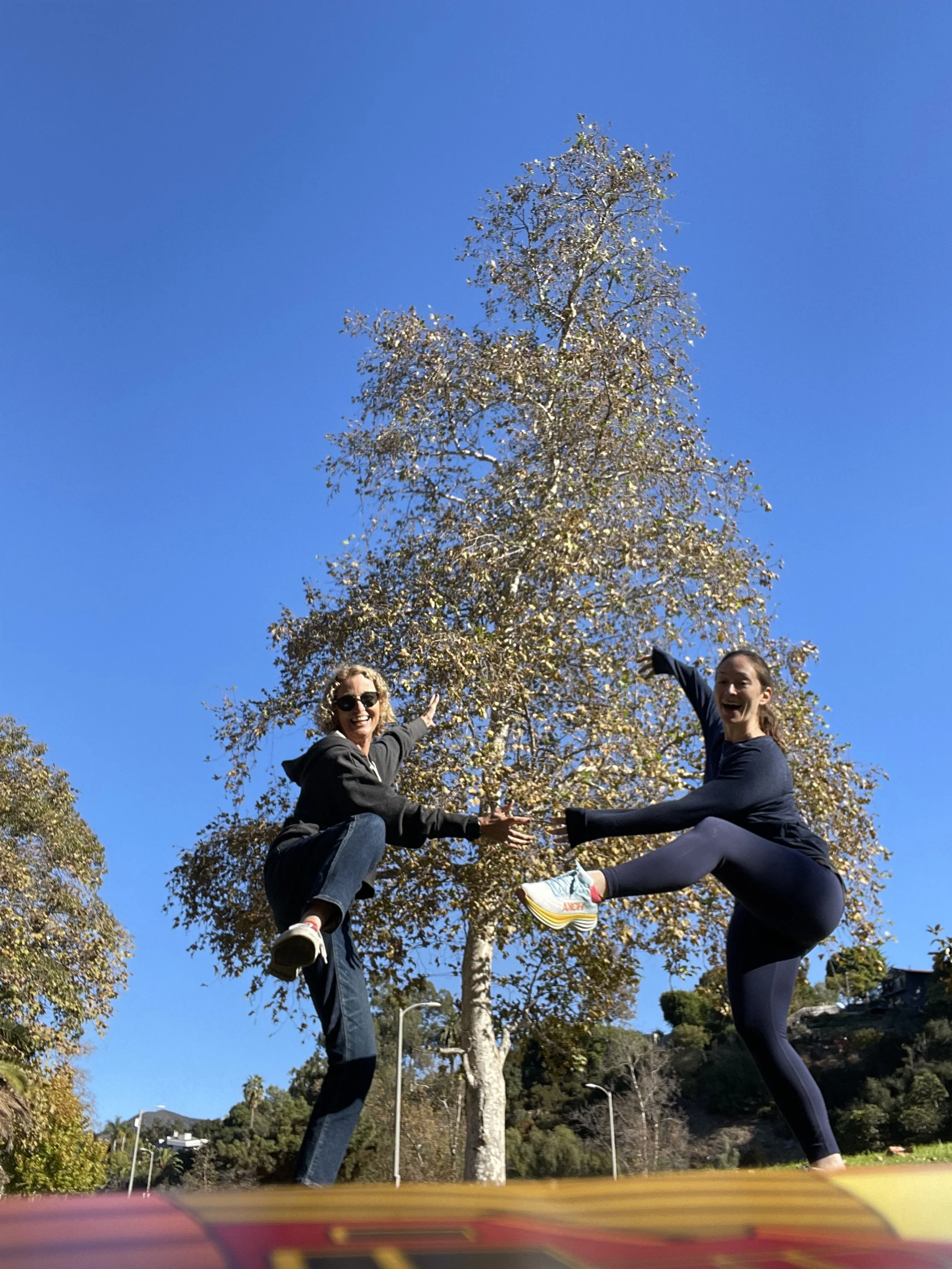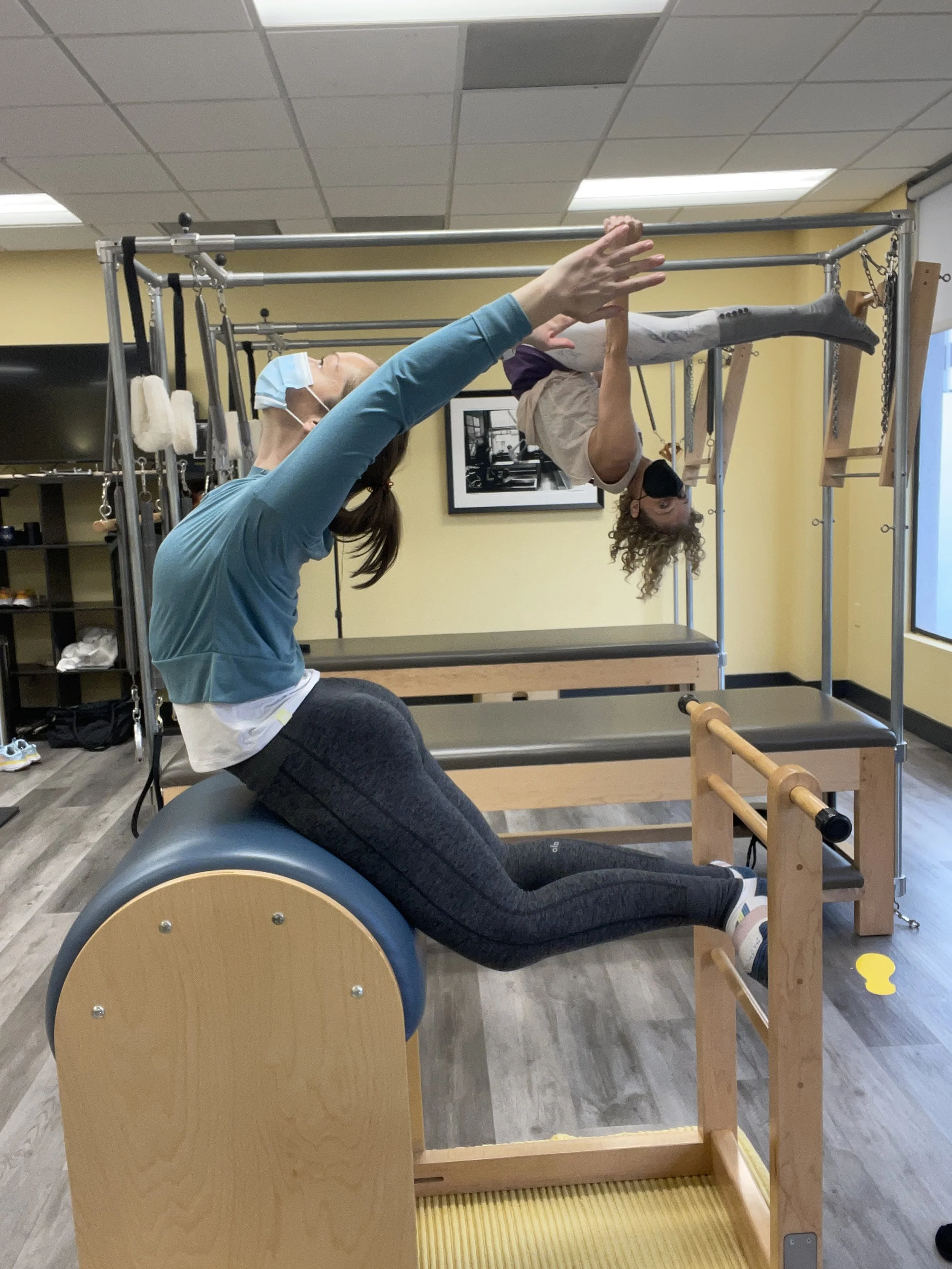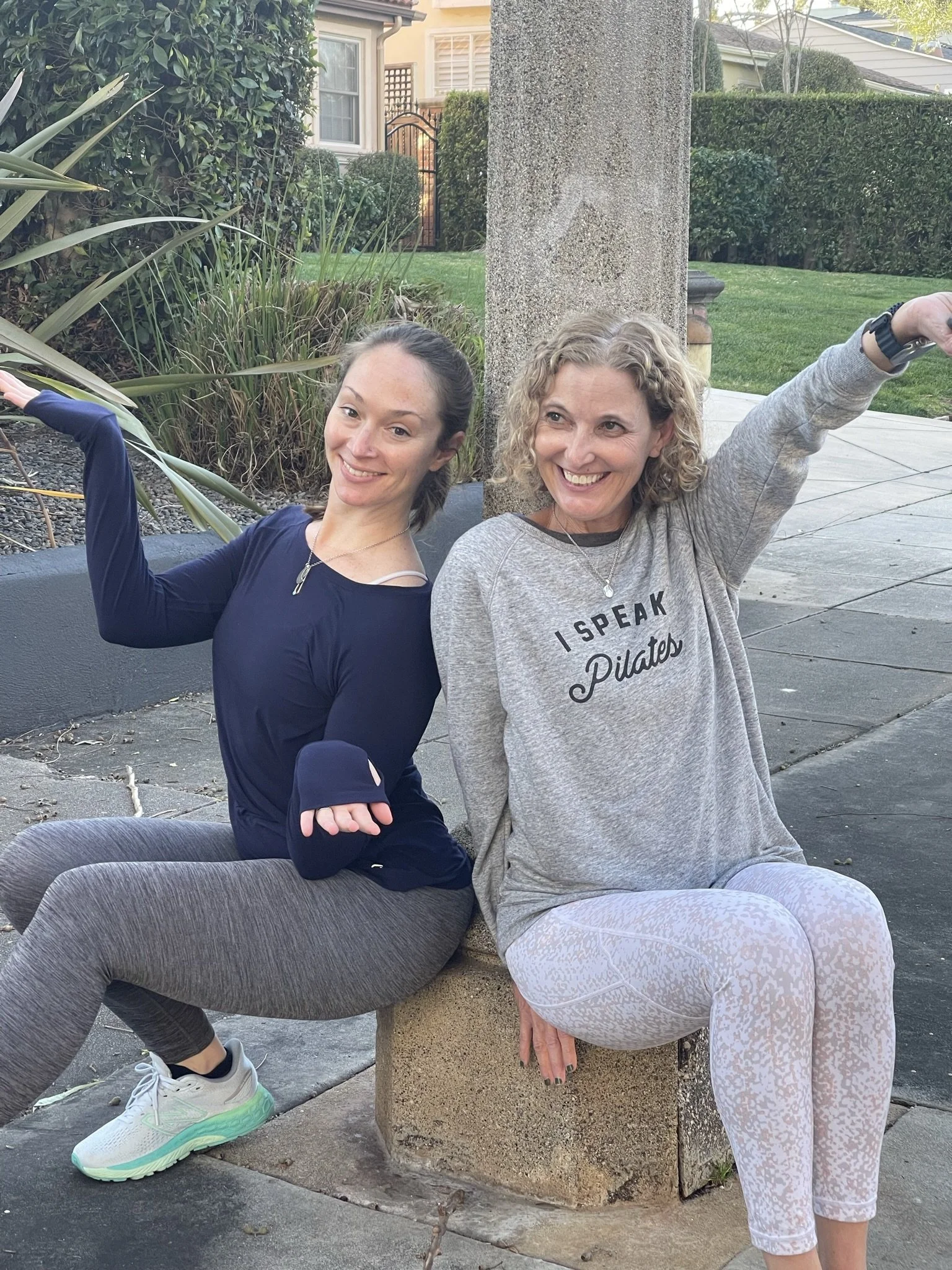Pilates Teachers and Clients need to make mistakes to grow
Teaching and practicing Pilates is not about being perfect. Practicing Pilates is not about being perfect. There is no perfect in Pilates we like to say and so, every Pilates teacher and Pilates client will make mistakes no matter how long they have been teaching or practicing Pilates. It is the way it is and should be. Mistakes happen in Pilates
Perfect rarely exists anywhere in life, but especially in a detailed practice such as Pilates, we continue developing and learning throughout the length of our commitment to the Pilates Method. Every Pilates teacher and client will make mistakes no matter how long we've been teaching or practicing.
So the real question is how do we handle these moments in Pilates when a mistake is made, either as the Pilates teacher or as the Pilates client?
Now, we aren’t talking about the mistakes that have to do with safety, of course, we want to make sure that we always keep our clients safe and also ourselves as Pilates teachers safe at the same time but, those moments that unexpectedly send the workout into an area of “what just happened?” Then what happens?
Often we can become embarrassed or frustrated. While it's perfectly normal to feel those emotions after making mistakes, it's the ideal time to learn and to figure out what didn't work, and what may work next time. After an exercise didn't go as planned or as perfectly as one would like, teachers will hear things such as "oh, I can't do that”.At this moment for you and the client it is a time to not think “oh no! so wrong!” but, a time to step back and explore what is going on, or not happening at this moment.
Often a client will even say they can't do something as they are actually doing the movement. There is this idea that if it doesn't look pretty or perfect then it's not "right". But these moments are the perfect time to learn. Our goal is not to be perfect, our goal is to always continue developing and learning. That is how we get better and stronger.
In our podcast "Turning Mistakes into Teaching Moments", we discuss the importance of not only making mistakes but also how important these moments are for growth, and how we handle the situation moving forward.
We can think of mistakes simply as information. If we did something that didn't quite work that's ok, this is just information for us to use in order to learn and improve. As teachers, we're learning about our client, how they think, how their body responds, and how they interpret cues.
When a client makes a mistake, they are learning about themselves and their body, about the method of Pilates, and how to approach an exercise. We're all constantly learning throughout the practice. Because of this, we shouldn't keep stopping when we feel we can't do something.
Mistakes help us grow as Pilates teachers and as clients. These mistakes are just information for both the teacher and the client. The Pilates teacher can step back and take note of what is going on but, letting the client explore and figure out what happened or what didn’t happen. Allowing this will only make that client grow in their Pilates journey and practice. To essentially learn from that so-called mistake.
As a teacher, it’s essential not to regularly stop the client to constantly correct or fix to perfection, but rather let the client move through and figure it out. As a client, it's necessary to try the movement multiple times to allow the body to work through the confusion and find the coordination in order to embody the exercise. We need to keep trying, using the physical feedback for the body from the exercise to learn how to change and adapt.
When thinking about mistakes in Pilates there are countless scenarios that can emerge in sessions, but some of the most common ones that occur for the teacher are placing the wrong spring set-up, not lowering the headrest for overhead flexion exercises on the Reformer, or starting a different exercise than was cued.
How we recover from these moments can change how both the client and teacher feel. Since we want these moments to be learning experiences we don't want to create a feeling of "freaking out" or panic. If you as the teacher are calm then the client will be calm feel your confidence and knowledge and that you will take care of them.
We want to maintain this sense of calmness when we notice we've made a mistake. So when a client has started an exercise with the incorrect spring load or the headrest still lifted, we can ask the client to change the spring or headrest set up after they finish the repetition they are on. We must have the confidence to guide the client through an exercise without panicking even when something unintended happens.
You learn as a Pilates teacher that each body is different and how they move and react to situations is different. Letting the client figure things out for themselves then of course there are going to be mistakes and moments of “what the?”
How you react as a Pilates teacher and as a client is important in these moments. We know you have heard this from us before but, teaching Pilates and practicing Pilates is like detective work each time you do it.
Mistakes as a Pilates teacher and as a Pilates client is all about looking at what is happening, exploring and listening to what the body is wanting to do, and figuring out what is missing or maybe being bypassed by some pattern of the body that day.
Using those detective skills you are looking at the full picture, what was happening before, what changed or what shifted..can you step back and guide this moment on a path that will continue to move forward and not get stuck in this place?
Learning from the body, each time is always working through mistakes. It is just some are more obvious than others. Some get hidden and may show in a spotlight moment but, in reality, they have always been there. Waiting to be discovered.
When a client comes to Pilates and you work with them you may be so focused on one thing so intently that the so-called moment of a mistake goes by unseen. Then as things unwind and become more clear other things will pop up and that may be when the detective work begins. We like to say this is when the fun really begins.
By using these moments as tools, guiding the client to pause and think about what they notice, we can navigate calmly and effectively to learn and grow in any situation. We've been told since we were kids that we can learn from mistakes and that still holds true. Truly we learn the most from making mistakes, and when we try to be perfect all the time that can actually hold us back from experiencing and learning.
As a Pilates teacher it is easy to get into thinking we have to know all the answers. But it's ok to not know or to say the wrong thing, as long as we acknowledge when we realize a mistake was made. It's much worse to think we know something when we actually don't.
When a client has a challenge with a particular exercise and we assume we know why stating a specific muscle is tight or weak so we tell this to the client as if that were a definitive answer. We can share our educated opinion or evidence-based guesswork, but to state why a client couldn't do something takes out the detective work for the client themselves.
We have to share in our detective work each session, allowing the client to work through it themselves and make those mistakes so we can observe where their body and focus are at that day.
A lot of times, we have to work through a few exercises or a few repetitions to get to the answer of why something is moving a certain way. Being able to admit to and acknowledge mistakes is also an important skill to have in life even outside the studio.
It can be intimidating to admit when we're wrong, but having the confidence to say that also allows us to move forward from these moments both inside and outside the studio.
Even after many years of teaching Pilates we still make mistakes. After decades of practicing Pilates, we still have much to learn and improve. We are constantly changing, learning, and growing no matter how long we have been teaching or practicing. Pilates is constantly changing for our movement as life flows and our bodies adapt over time.
So next time that mistake happens let out a “whhooohhoooh” as this is when you and your client are going to learn the most in the work!
--
